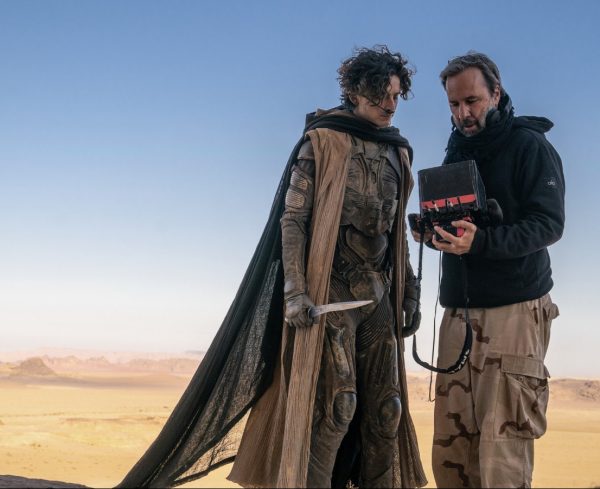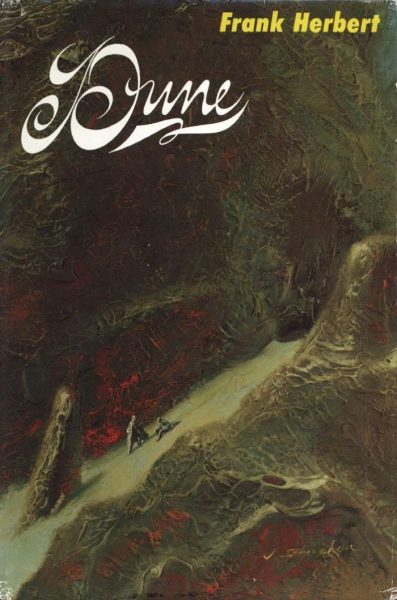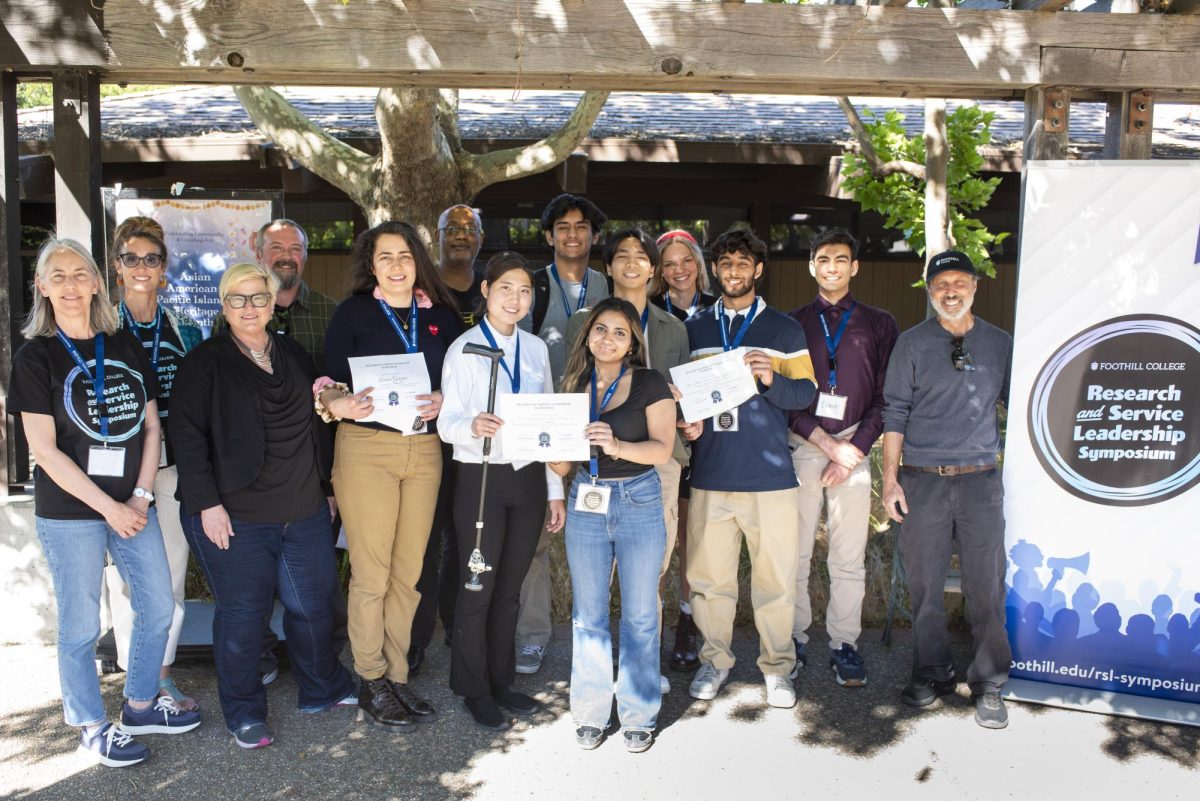Dune: Part Two is sure to be one of the premiere blockbusters of the year, and its $600 million dollar box office is still going strong at the time of writing. It has everything a global best seller needs: Teeth-clenching scenes of suspense, heart-pounding action, a soaring score, and you can’t forget the slightly canned romance.
The story picks up after the events of Dune: Part One, with Paul, Jessica, and the Fremen they happened across all hiding from the Harkonnens on the banks of a sand dune. Little time has passed, evident by the corpse of Jamis, a Fremen Warrior Paul killed in order to be accepted by them, still accompanying them as they make their way to a sietch, a Fremen hideaway.
The CGI and VFX present in the movie are just as beautiful as the first, and there is an impressive amount of practical effects. Denis Villeneuve, the Director of the film, said in an interview that they carted trucks with beds packed to the brim with real sand for many scenes, and a certain one involving a sandworm requiring a particularly large amount. In a scene breakdown with Vanity Fair, Villenueve remarked on the practical element of the sandworm riding scene, “We were throwing an insane amount of dust on the [actors], tons of dust. I wanted to feel the character going through waves of sand, and disappearing into dust.”
Many sets are clearly physically present, including the sweeping deserts, the carved stone of the sietches, the medieval futurism of Giedi Prime, and so much more. Unlike other films, Oppenheimer comes to my mind, they do not fixate on the practical though. CGI is used liberally and is often used to enhance the present practical effects instead of creating them from scratch. Despite that willingness to embrace technology, Villenueve was adamant about shooting in the desert with purely natural light. “[Using natural light] brings a level of higher realism and a feeling of a strong tactile sensation that you feel with the nature that I was looking for.”
There were also some unique and visually distinct choices made regarding the cameras used to film certain scenes. Every time you see the outdoors of Giedi Prime, the view turns to an infrared spectrum, reflecting the Black Sun that the planet circles, which only emits infrared light. There is a particular shot I absolutely loved when watching the film, in which the Baron exits from indoors into a viewing chamber, and the color slowly drains from the shot as the black sun’s light shines down on him.

What really elevates this film, far more than its impressive visuals, is the performances of its cast. Filled to the brim with massive names, the caliber of acting justifies the cast as more than just an audience draw. For the most part, at least. As someone who wasn’t entirely sold on Timothée Chalamet as Paul Atreides in the first film, I was pleasantly surprised by his performance in this film. Seeing what was done with his character in this film, I much better understand why exactly Villeneuve went with Paul’s direction in the first film. Chalamet really comes to life in the latter half of Part Two, and there are multiple scenes he commands the entirety of.
Zendaya, on the other hand, was one of the few who didn’t impress me. It is a real shame, considering I really appreciate what Denis did with her character, and how her role changed from the novel, but Zendaya failed to make it believable, at least for me. It’s not so much that she was awful or even bad, but was comparatively mediocre to most of the rest of the cast. Often, she seems to only have one “look” for situations where she has to act non-verbally, and the emotion she puts on display never feels raw or real. She and Chalamet also have very little chemistry, and while that is an equal failing on both of their parts, Chalamet at least impresses in other scenes.
Javier Bardem, who plays the religious Fremen Stilgar, was one of the standouts of the film. Whenever he is on screen he steals the show, and the range that he displays in this film is vast. In one scene he is comedic and foolish, the next he is solemn and foreboding, another he is inciting and wrathful. Bardem is a master, and this is him close to his best.
Josh Brolin as Gurney Halleck was another weak part of the film for me. He was rather mediocre in the first film in my opinion, but it was not as offensive due to the difference in tone. Brolin’s interjections of levity and humor just feel off-putting and out of place, and they draw a stark contrast to Bardem’s expertly delivered dialogue and expressions as Stilgar. He plays the grizzled army vet but feels more like one from 2002 than 10191, and the many attempts to tug at heartstrings through his relationship with Paul’s father Leto fell resoundingly flat.
Rebecca Ferguson as Lady Jessica was definitely another one of, if not the, standout performances for me. There is such a distinct difference in her acting when comparing before and after a certain event that happens early on in the movie, and it feels as if she is a completely different character sometimes, though you can still see the woman we saw in Part One still peel out at times.
There were many other great performances in the film. Austin Butler as Feyd-Rautha was suitably menacing and odd, and Butler does well at selling a familial relationship to the Baron. Stellan Skarsgård as the Baron was brilliant, just as he was in the first film. Florence Pugh was suitable as Irulan, though it is hard to say given her limited screen time, and the same goes for Christopher Walken as the Emperor. Two characters who needed little time to shine, however, were Léa Seydoux as Margot Fenring and Charlotte Rampling as the Bene Gesserit Reverend Mother. Rampling continued her amazing portrayal from the first film, and Seydoux does wonders in her scene alongside Butler.

One of the most interesting things about the movie, however, is not even the film itself. Rather, the multitudes of reactions audiences have to the film. Doubtless, some of you reading this have seen the memes about ‘Lisan al Gaib,’ often paired with Stilgar making some face of worship. While most of these are certainly done with a certain amount of tongue in cheek, I’ve found a significant number of viewers have the message of the film go over their heads. Much like the Fremen, they have seen in Paul Atreides a messianic figure worthy of praise and respect.
Of course, if you know anything about Frank Herbert you’ll imagine him rolling over in his grave at these reactions. Many have criticized Dune as being a “white savior” story over the decades since it was released, however Herbert’s intentions were anything but. In fact, he has said on many occasions that Dune is a criticism rather than a celebration of that type of narrative. In an interview with Dr. Willis McNelly of Cal. State Fullerton, Herbert remarked that “…Western man has assumed that if you have…that all you need for any problem is enough force, power, and that there is no problem which won’t submit to this approach, even the problem of our own ignorance.”
Perhaps my biggest criticism of the film is the censorship applied to the term “jihad.” It is used liberally and frequently throughout the book, but in Dune: Part One and Part Two, is referred to as a “holy war” or even a “crusade.” For all of Villeneuve’s changes to Chani in order to combat the positive reaction many book readers and Part One viewers had, the whitewashing of this term remains stark. Whether it was Villeneuve, the studio, or someone else’s choice to change it I do not know. The reasons for the change, ranging from not wanting to offend, the sensitivity of the term in modern times, or something else I can only suspect. Though many of you reading this likely only associate the word jihad with terrorism, it is a term that originally meant a “great struggle or effort.” According to learningforjustice.org “The ‘Greater Jihad’ is the struggle against the lower self – the struggle to purify one’s heart, do good, avoid evil, and make oneself a better person.”
Herbert, for all of his faults, was very knowledgeable about Islamic culture, and I believe his understanding of the word “jihad” was nuanced. Despite the original meaning of the word, there is no doubt it has been used incorrectly or inappropriately throughout the centuries of history, and I think Herbert captured that perfectly through what the Fremen believed the jihad the Lisan al Gaib headed would bring. After literal centuries of being abused, manipulated, and exploited by the Bene Gesserit, the Empire, and the Harkonnens this faith in the Lisan al Gaib and their jihad was the symbol that their struggle would be rewarded, and Arrakis would be turned into a green paradise once more. However, they did not know that this faith was also the Bene Gesserit’s doing, and was just yet another way to exploit them, much like how leaders throughout history have used jihad to manipulate those true of faith to their own aims.
Dune is a complex and thoughtful narrative on the danger of charismatic leaders and Messianic figures, the exploitation and oppression of native peoples, the complexities of faith and power, and so much more. Despite my problems with the film, I believe Dune: Part Two is a modern masterpiece, or at least close to it. I am very excited to see what they do with the film adaptation of Dune: Messiah, and I hope you are too!
Rating: 9/10






















































































